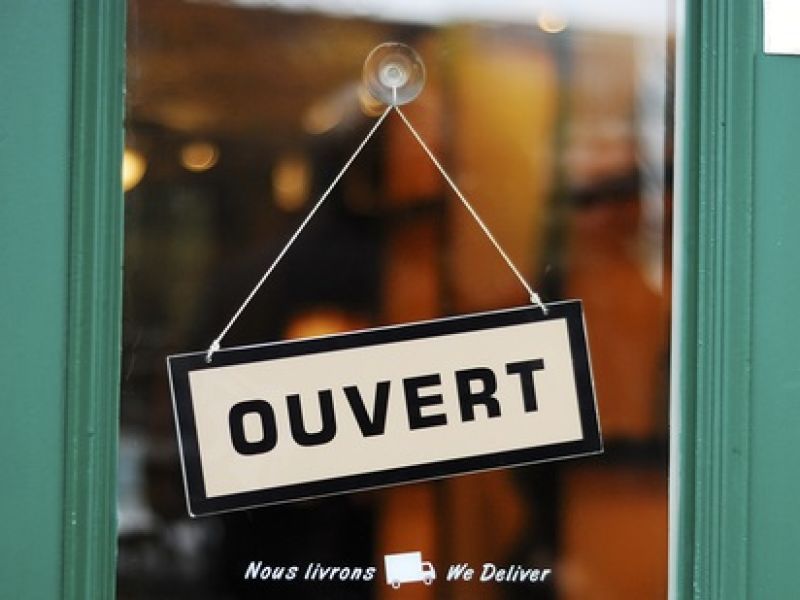Coming fourth in the World Bank’s Ease of Doing Business rankings and named the best place to live by CEOWORLD magazine, Denmark is an attractive prospect for entrepreneurs, who are often drawn by the Danish government’s pro-business policies.
Those creating a business in Denmark can benefit from a huge amount of both private and public sector support, with foreign entrepreneurs having access to investment funds, research centres and incubators.
But while this provides a fantastic jumping off point, achieving seamless integration and long-term profitability will involve immersing yourself in the Danish work culture. Here we explain what you need to know to do well as a business person in Denmark.
Why Denmark?
Anyone looking to start a company in Denmark will benefit from several extremely liveable and business-friendly cities, a supportive attitude to start ups and simplified process of regulation and double-taxation treaties which ensures bureaucracy doesn't become overwhelming.
This appeal isn't only confined to entrepreneurs either, with the Confederation of Danish Industry reporting that the country now has more than 200,000 foreigners at work - making up a small but significant minority of working-age adults.
While factors such as a highly educated workforce, high productivity rates and a welcoming attitude to entrepreneurship are naturally attractive to business people, data from the OECD suggests that it isn’t only the ease of doing business which draws people to Denmark.
In fact, Denmark is often lauded as having one of the most flexible and balanced work cultures in the world, and is celebrated for the impact this has on people’s productivity - with Danes outstripping the USA, Canada, Japan, Australia and every country in Europe excluding Ireland in this key metric.
Work/Life Balance
If you are one of the thousands of overseas settlers who choose to live, work or set up a company in Denmark every year, understanding what you need to know about Denmark’s work culture can help you make the experience a success. Similar to its Scandinavian cousins of Sweden, Finland and Norway, Denmark enjoys a reputation for providing a strong social safety net for its residents, and a generous attitude to paid leave, working hours and the right to disconnect.
This reputation is not unfounded. Perhaps the most important thing to embrace in Denmark if you are planning to start a business is that, in an international context, Dane’s enjoy (and expect) a healthy work/life balance. Research from the OECD uncovered that:
• Only 2% of employees work very long hours, compared to the 11% OECD average.
• Denmark has a 37-hour official work week, which is 11 hours less than the UK’s upper legal limit on working hours. While employees and employers can negotiate longer work weeks, most Danes prefer to stick to 37 hours.
• Due to the family-friendly policies of a relatively short working week, flexible hours, and state-subsidised child care, Danish women are employed outside the home at a 13% higher rate than the OECD average.
Understanding the Danish pace of life
Respecting the Danish way of doing business and becoming a part of their thriving economy requires foreign entrepreneurs to operate along these cultural norms, even if they are different to what they may be used to.
As mentioned above, Danes are some of the world’s most efficient and productive workers. However, they are likely to be used to a large degree of autonomy in how they manage their workload, and may arrange it to their own needs and preferences. In Denmark, the main focus is that tasks are completed well and deadlines are met, not the journey to that point.
Related article: The Best Cities to Start a Business in Denmark
Most desks in Denmark will be empty by 5pm, as employees tend to filter away from around 4pm to collect children from school and enjoy their evening. Staying extra hours is not generally encouraged in Denmark. People are instead given manageable workloads that they are expected to complete within normal working hours.
Companies pride themselves on reducing stress in their workforce and believe doing so unlocks greater motivation and creativity. In July, much of the population takes time off to make the most of the short summer. Danes are entitled to five weeks of holiday a year and will expect to use all of it.
It is also the norm in Denmark for companies to give greater flexibility to parents, allowing for circumstances such as children’s dentist appointments or nursery pick-up. There may also be an expectation to provide paid days off for kids' sick days. For Danish workers, it is considered ill-mannered to go to work while feeling unwell and potentially spread the sickness. Instead, employees are expected to recover at home.
Getting to grips with Danish working etiquette
Working and business etiquette in Denmark is in some ways unique to that country, and while the famously welcoming Danes will forgive faux pas from people new to the country, it can be helpful to get your head around some Danish social norms.
The counterbalance to Denmark’s generous work life balance is that employees are expected to be proactive, productive and contribute to company conversations, whatever their title or function.
While it would be considered strange to arrive at a business meeting very early in Denmark, people are expected to be punctual and lateness can be construed as rudeness.
Related article: The Best Cities to Start a Business in Sweden
Danes often have busy social calendars, and being friendly with colleagues both in and outside of work is appreciated - often being taken as a sign that you are embracing the culture. For example, Danish colleagues will tend to have lunch and breaks together rather than seeking out alone-time.
Denmark workplaces are usually defined by a flat hierarchical structure. Communication is clear and usually unflowery (which may be disorientating for those who come from cultures where politeness is marked by couching statements), and titles are rarely used, creating a casual atmosphere. This casual atmosphere is part of the Danish egalitarian mindset, where every member of the team’s opinion is valued and people are encouraged to be a part of the decision-making process.
Most Danish people are bilingual and speak English - with some corporations making it their official business language - but as a lot of workplace small talk takes place in Danish, international settlers can benefit hugely from learning the language (the effort of which Danes will appreciate).
Danish work settings are, for the most part, laid-back and informal, with humour not considered to be inappropriate in professional settings. Classic Danish humour tends, like the British, to be dry and self-deprecating, with a strong emphasis on cutting people down to size if their ego grows too large. This can be disorientating at first (as many people struggle to understand what’s meant in good humour and what’s not!) but something that becomes more familiar with time.
Setting up a business in Denmark is something that promises to be a great adventure, and one that has every chance of success. By becoming a part of the Danish work culture, business owners can find themselves enjoying not only a more motivated and engaged workforce, but a greater work/life balance in their own lives.
If you want to start a business in Denmark or in 30 other countries in Europe, we can help you through every stage including registering a business address and business banking, with our fully inclusive company formation services. Please feel free to call us on 0033 (0)1 53 57 49 10 or email us from our contact page and we’d be happy to help you.






